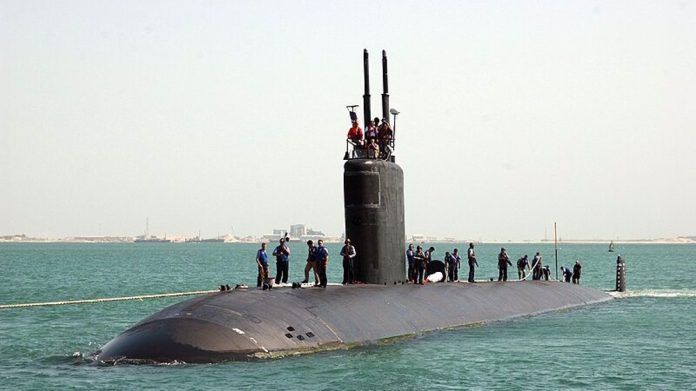In accordance with a recent agreement between the two allies to ostensibly deter North Korea’s expanding military might, the US has deployed a second nuclear-armed ballistic missile submarine (SSBN) to a port in South Korea.
The USS Annapolis, which was on an unidentified operational mission, arrived at a naval base in the southern island of Jeju on Monday, according to a statement released by the South Korean Navy.
With the arrival of the USS Annapolis, the two nations’ navies “plan to strengthen the combined defense posture” and conduct exchange exercises to mark the alliance’s 70th anniversary.
read more: US military stationed nuclear-armed submarine in South Korea
After the US military sent its first SSBN to South Korea amid rising tensions on the Korean Peninsula, the most recent development occurred almost a week ago.
The USS Kentucky, an Ohio-class submarine, made its first trip to South Korea in nearly 44 years on Tuesday when it docked in the port of Busan.
US President Joe Biden and South Korean President Yoon Suk Yeol reached an understanding in April regarding the recurrent deployment of American nuclear assets to the Korean Peninsula. They also decided to expand military drills and establish a bilateral NCG.
The agreement to station US nuclear weapons in South Korea has drawn vehement criticism from North Korea, which has vowed to respond to the agreement proportionately.
Because of its ballistic missile and nuclear deterrent programs, North Korea has long been subject to severe sanctions from the United States and the UN Security Council.
In response to ongoing joint military exercises by US and South Korean forces close to its territorial waters, Pyongyang has increased the frequency of its missile tests. It conducted a record-breaking number of missile launches in 2022, including the most sophisticated intercontinental ballistic missile ever.
The two nations declared in a joint statement following the meeting that “any nuclear attack by North Korea against the United States or its allies is unacceptable and will result in the end of that regime.”













